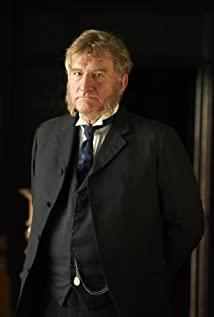Red roses in prison, which offer the fragrance and fragile beauty to the dying prisoners, have already predicted a vivid metaphor at the beginning. Love is beautiful, like rose; yet love is cold and painful, like its thorn.
I don't understand the treatise on Good and Evil in transcendentalism of Emerson, I don't understand the concept of salvation in the Bible, more don't understand the puritan tradition in the United States. The scarlet letter, for me, is not only a piece of love history, but also a confession related to the original sin. With the fall of Adam and Eve, human beings are originally sinful. The Bible tells us love covers over all wrongs. Moreover, the innocent is not the one to blame. A kind-hearted and honest couple, once trapped in the puzzle of extramarital affair, they are destined to walk into a dilemma—since the flame of love and the perfection of morality mostly can't live together. As in Paradise Lost, the hero and heroine choose to suicide in their blissful love.
There are no ugly loves, nor handsome prisons. For Arthur, Hester is undoubtedly beauteous in looks, and seductive in personality. For Hester, when Arthur says I love you affectionately to her, she can feel the love that he bears patiently in this man's eyes and hands, even silence. In their seven years, determination, hypocrisy, and self-deception are all human nature; in their whole life, long waiting, sense of guilt, and endurance for the contempt are all atonement. In my eyes, Hester veritably has the right to say love although her purity and courage deviate from morality and ethics. Love is colder than death—their love is holy but miserable, like the sacrificial offerings on the altar.
The bible says that love can bear all things, hope all things, and endure all things. Miss Hester keeps silence for their forbidden love for seven years, while Mr. Arthur pays for this piece of virtueless love at the cost of his life. Who dares to say that the affection between Hester and Arthur is not true love? Common customs tear their bodies apart, but their souls will stay together forever. They feel each other in their stomachs, and they enjoy the ecstasy of sex. Who dares to say that sex doesn't mean love? There is no doubt that Pearl is the crystal of their love.
Love is a kind of curse, and love is a lonely carnival. The Scarlet Letter not merely tells the process of romantic love, it tells the ending of love—more accurately the consequence of love that knocks on everyone's soul. When Arthur falls down on the scaffold due to the heavy burden in mind, when Hester's ashes are buried beside Arthur after many years, have they ever regretted for the things they had done, including love and the confession of love? Love is colder than death - Hester and Arthur break the curse—chains of morality, and the sublimation of their love burns all the people's eyes.
With a bloody letter A on his naked chest, Arthur died in Hester's arms—he is finally released. However, his deep love for Hester will never disappear. The moment when Arthur eventually stands in front of the multitude and shouts loudly I LOVE THIS WOMAN, we witness a scene of extraordinary love, and the shameful letter A is endowed with new meaning.
Every character in the book is adorned with a letter A. Hester and Arthur are the undertakers of A. Those righteous people in New England who propose to punish Hester with A—they are the makers of A. And those crowds of onlookers are witnesses of A. Hester's husband is a dirty dog—he is the enquirer of A. Little Pearl is compared to the fruit of sin, and she is the savior of A. I think the scarlet letter A can be considered as Adultery, Able, Admirable, Amour, Angel, Advance, and even America.
In the end, Hawthorne writes, On a field, sable, the letter A, gules. I seem to see a woman kneel on the wasteland, in front of her there is a tomb . The woman is so devout that she looks like a statue of a nun. She firmly believes that there will be a new era some day, a bright and heavenly era.
Love is colder than death. Hester and Arthur, have already lost their names, bodies and souls.
Now, maybe I should go to read Moby Dick by Melville. That's for Hawthorne.
View more about The Scarlet Letter reviews











